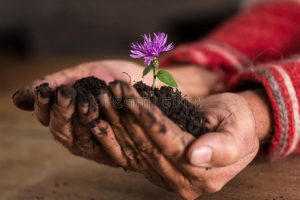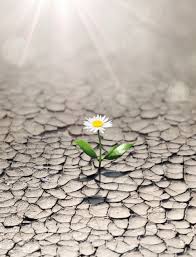 The Yogabliss, Two Rivers/RiverTree Yoga on-line Moving into Meditation classes met this morning. We contemplated how we walk the line of life we are given. We find a balance between handling life’s difficulties and nourishing and uplifting the heart.
The Yogabliss, Two Rivers/RiverTree Yoga on-line Moving into Meditation classes met this morning. We contemplated how we walk the line of life we are given. We find a balance between handling life’s difficulties and nourishing and uplifting the heart.
This is where mindfulness really helps. We engage experience with an open, kind and curious awareness.. We cultivate a loving awareness that helps us let the world in without getting overwhelmed.
In guided meditation we reflected on life’s gifts that are easy to overlook – an easy breath, a pain free morning, a good night of sleep. We thought about simple kindnesses given to us by others and our own goodness. Savoring these pleasant experiences feels good. Lingering over what’s good in life feels hopeful.
We heard poet Joy Harjo’s poem, Perhaps the World Ends Here. Hah! The title sounds grim I know. The poem is about the kitchen table a place where we as family and friends gather to celebrate our joys and mourn our sorrows.
We also heard some of meditation instructor Oren Jay Sofer’s interview, Why Buddhism is Inherently Hopeful. Oren encourages us to practice careful attention so that we can truly understand our interdependence and mutuality. All of our actions count and can contribute to building a better world.
Finally Marilyn Peretti’s poem, Stepping Lightly, reminds us of the weight of each of our steps has on this earth.
Relaxed Reflection
 We are taking refuge in a practice that fosters acceptance, kindness and curiosity. . . . Our time together is born from a sense of intention . . . We can take a few moments to reflect on why we’ve come . . .
We are taking refuge in a practice that fosters acceptance, kindness and curiosity. . . . Our time together is born from a sense of intention . . . We can take a few moments to reflect on why we’ve come . . .
The stress and uncertainty of our daily lives give us plenty to worry about . . . We have plenty to remind us of what’s wrong . . . Our practice can help to remind us of the goodness that’s already here and available in daily life. When we uplift the heart just a little we have more energy and strength to devote to the things we care about . .
. . . Each breath is a gift freely given . . . We don’t have to do anything to earn or deserve it . . . Just feeling how the body breathes in and fills with new life . . . See what it’s like to appreciate your breathing in this way receiving each in breath as a gift . . .
 Uplifting the heart isn’t about avoiding what’s difficult or pretending everything is o.k. if it isn’t . . . It’s about noticing the things we ordinarily take for granted and allowing them to nourish us. . . To start you might think of something kind that someone said or did recently. It could be as simple as a smile or someone who spent time with you or offered to help you. Let that moment or person come to mind . . . Let your attention linger there for a bit . . . just remembering that moment of kindness . . .Notice any feelings or sensations of ease or pleasure however small and really let that in . . . Take some time here to just savor that moment . . .
Uplifting the heart isn’t about avoiding what’s difficult or pretending everything is o.k. if it isn’t . . . It’s about noticing the things we ordinarily take for granted and allowing them to nourish us. . . To start you might think of something kind that someone said or did recently. It could be as simple as a smile or someone who spent time with you or offered to help you. Let that moment or person come to mind . . . Let your attention linger there for a bit . . . just remembering that moment of kindness . . .Notice any feelings or sensations of ease or pleasure however small and really let that in . . . Take some time here to just savor that moment . . .
Next you might recall a moment of beauty, a moment of happiness or pleasure from the last few days or week . . . let that moment come to mind . . . and then linger there . . . Notice how it feels to remember this . . . Is there any place in your body that feels good as you think of it? Maybe you feel it in your face or in your chest or somewhere else? Take some time to let this memory really come to life and then savor it. . . .
 Another way to uplift the heart is to notice our own goodness. It’s so easy to focus on our faults. Instead see what it’s like to bring to mind one thing that you appreciate about yourself. This isn’t always easy. It could be some small kindness you offered someone. Picking up trash on the trail . . . It could be taking care of yourself. Like choosing to meditate right now . . . We’re simply recognizing and focusing on one good quality that we value that we want to strengthen in our lives . . .
Another way to uplift the heart is to notice our own goodness. It’s so easy to focus on our faults. Instead see what it’s like to bring to mind one thing that you appreciate about yourself. This isn’t always easy. It could be some small kindness you offered someone. Picking up trash on the trail . . . It could be taking care of yourself. Like choosing to meditate right now . . . We’re simply recognizing and focusing on one good quality that we value that we want to strengthen in our lives . . .
Nurturing qualities we value by thinking about them, acting on them uplifts the heart. Noticing kindness and beauty in our outer and inner world can improve our overall sense of well being and connection with the world. It helps us to think clearly and positively about the future . . .
We can start uplifting the heart with the little things . . . the ordinary moments in which we are awake enough to really make eye contact with another . . . what comes alive in that moment of connection?
Poet Joy Harjo writes of this in her poem, Perhaps the World Ends Here:
The world begins at a kitchen table. No matter what, we must eat to live.
The gifts of earth are brought and prepared, set on the table. So it has been since creation, and it will go on.
We chase chickens or dogs away from it. Babies teethe at the corners. They scrape their knees under it.
It is here that children are given instructions on what it means to be human. We make men at it, we make women.
 At this table we gossip, recall enemies and the ghosts of lovers.
At this table we gossip, recall enemies and the ghosts of lovers.
Our dreams drink coffee with us as they put their arms around our children. They laugh with us at our poor falling-down selves and as we put ourselves back together once again at the table.
This table has been a house in the rain, an umbrella in the sun.
Wars have begun and ended at this table. It is a place to hide in the shadow of terror. A place to celebrate the terrible victory.
We have given birth on this table, and have prepared our parents for burial here.
At this table we sing with joy, with sorrow. We pray of suffering and remorse. We give thanks.
Perhaps the world will end at the kitchen table, while we are laughing and crying, eating of the last sweet bite.
 When we pause, we can begin to experience ourselves as part of a vast web of life in which we eat and sleep, we dream, we birth and raise our children. . . “. . . we sing with joy, with sorrow. We pray of suffering and remorse. We give thanks.. . .” Right now we can give thanks . . . We can sense being part of it all . . . The ups and downs, the mysteries of being alive . . . What can we open to? How is it to meet what ever arises – even difficulties – with acceptance . . . kindness . . . curiosity? These are essential qualities of mindfulness.
When we pause, we can begin to experience ourselves as part of a vast web of life in which we eat and sleep, we dream, we birth and raise our children. . . “. . . we sing with joy, with sorrow. We pray of suffering and remorse. We give thanks.. . .” Right now we can give thanks . . . We can sense being part of it all . . . The ups and downs, the mysteries of being alive . . . What can we open to? How is it to meet what ever arises – even difficulties – with acceptance . . . kindness . . . curiosity? These are essential qualities of mindfulness.
In his recent interview, Why Buddhism Is Inherently Hopeful, meditation instructor Oren Jay Sofer speaks about our part in the web:
. . . The more conscious we are, the more we’re able to understand this network of interdependence and mutuality that we’re all existing in, the more we can navigate the kind of world we want to live in.. . . Change and transformation are possible but it doesn’t come from wishing. It comes from what we do here and now. Our actions have effects. Down to what we think and the ways we navigate our inner life, the choices we make, the people we interact with, how we use our resources all of that effects our own life and one another’s life. Practical hope means we’re not in a hopeless situation because everything we do matters.
So we find our way to ” . . . a sense of balance between handling the difficulties we are experiencing and nourishing and uplifting the heart.” This is where mindfulness – engaging an open, kind and curious awareness really helps. It’s a loving awareness that helps us let the world in without getting overwhelmed. This balancing act is described beautifully by Marilyn Peretti in her poem, Stepping Lightly”
 We walk on air every day,
We walk on air every day,
the weight of our bodies
pressing our luck, pressing
through time and space,
one single chance
to stomp our heavy foot upon
tender green fragility, or
with our wings of diplomacy
spread wide, float along
the line of life we’re given,
crushing nothing in our path.
Let us support each other to move through life with acceptance, kindness and curiosity to “. . . float along the line of life we’re given, crushing nothing in our path.
